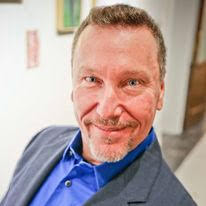We’re certain Boyle will solve its child care crisis
Published 5:29 pm Friday, February 22, 2019
There is a definite, desperate need for more and better child care options in Boyle County, as a report released this month by the Danville-Boyle Early Childhood Alliance clearly shows.
But as bad as some of the statistics sound, there’s a lot of good going on and a lot of good people working hard on the problems. We’re optimistic the Boyle County community will ultimately put in the hard work, make the tough choices and come out the other side not just better than before, but among the best in Kentucky.
There can be no doubt that Boyle County residents care about their children and the future. Hundreds have been involved at some level in responding to the county’s child care and early education needs. In any other community facing a similar crisis, it wouldn’t be surprising to see a handful of passionate advocates trying to act as a rudder to steer the much larger community toward better waters. In Boyle County, we have that core group working for change, but they are also flanked by our school systems, our colleges, our health care industry, our churches, our governments, our economic development leaders, our community services agencies and our parents.
Trending
With so many people from such a wide spectrum on-board and working to make things better, we don’t think there’s any chance they fail.
The alliance’s report makes it clear what Boyle County needs: more child care slots for infants and toddlers; increased quality ratings for local child care facilities; an Early Head Start program and an expanded Head Start program; and funding so lower-income families can afford to send their children to high-quality programs.
Members of the Early Childhood Alliance hit the nail on the head when they presented the report to members of the Develop Danville Board of Directors Wednesday, explaining how early education brightens the community’s economic future, while a lack of that education increases the likelihood of crime and the need for a bigger jail.
“We’re going to pay for this on one end or the other,” Amy Longwill said. “We can choose to invest in our children and early learning opportunities now, or we can pay a whole lot more when we get to the other end.”
Put another way, education is how you play the long game for community success.
Investment now might be difficult. It may feel like a high price to pay, and the results won’t be immediately visible — it could take years, even a generation to see the payoff.
Trending
But two decades down the road, when crime is low and our better educated workforce is pulling in more and bigger paychecks, that initial investment will appear tiny next to the return it generates.






